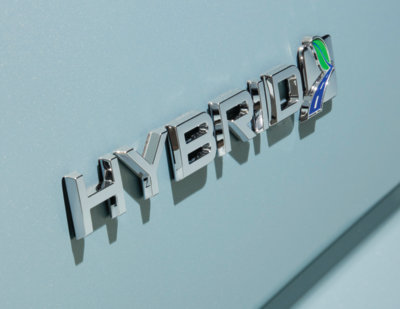With more than 3 million hybrids on the road, servicing hybrid ¬vehicles and hybrid fluid maintenance is in your future. Does that scare you? It shouldn’t. Some special procedures must be followed when working on a hybrid. Most dual-mode hybrids use one of the motors/generators to start the engine instead of a conventional starter attached to a bell housing. This allows the gas engine to start smoother and faster. During extended idling, the engine will shut down. When the driver hits the gas, the electric motors will propel the car forward and start the engine if required. The hybrid system will also use the engine to operate the cooling systems to reduce battery temperatures and charge the batteries.
This behavior can show up in the bay during service if certain precautions are not taken. The engine could start in the middle of an oil change, or the electrically driven A/C compressor could turn on during a recharge. Always check the service information for the disable procedures. Some vehicles may require that the key be a certain distance from the vehicle. Others may require a scan tool to disable certain functions. Never assume that one model year of a hybrid is the same as the next. Many manufacturers made sweeping changes due to improvements in software and hardware.
Engine Oil
Oil changes may not be needed as often with a hybrid because the engine runs less during low speeds and stop-and-go driving, but the oil still needs to be changed. Always use premium engine oils for these vehicles. Some late-model hybrids call for 0W-20 or 5W-20 weight motor oil. Not using the correct weight will damage the top-end of the motor. Hybrids regularly shut down and restart the engine more than a conventional vehicle, and starting an engine is the greatest cause of wear on any engine.
Transmission Fluids
Transmission fluid does not come in contact with the motor drives in any hybrid automatic transmission. Any leak or loss of fluid should be taken seriously. On the Prius, the CVT part of the transmission is sandwiched between the two motors/generators. In the first generation Prius, there were rare reports of the transmission fluid leaking into the electric motor case and damaging insulation. Some models will require a CVT-specific transmission fluid, while others will require a specific grade of fluid that could be compatible with conventional transmission fluid specifications.
Pay attention to the Mercon and manufacturer grades. For example, Mercon V is not the same as Mercon LV, which has a different viscosity. Check the container or ask your supplier if a fluid is compatible before you put it in the transmission. Never take specifications for granted — some Ford Fusion hybrids call for a Toyota/Aisin grade of transmission fluid.
Cooling Systems
Most hybrids have a separate cooling system for the inverter and electric motors/generators in the transmission case. These cooling systems typically have their own electric pump, heat exchanger and special coolant. On the Fusion, Escape and Prius, there are two coolant reservoirs under the hood. Always make sure the fluid is at the correct level. Most ¬manufacturers recommend flushing and filling the system when the engine’s cooling ¬system is serviced.
Air Conditioning
Some hybrid vehicles use air conditioning compressors that are operated by an electric motor instead of a drive belt. The motor’s insulated windings are immersed in the compressor’s lubricating oil. The oils used in these compressors have non-conductive properties. A variety of problems may occur if a different type of oil somehow makes its way into one of these compressors, and if the insulation on the windings is damaged or compromised.
The greatest risk is that the oil may conduct high voltage to the compressor case or connected components. A person may receive an electric shock if they touch the compressor, engine, etc., and an appropriate ground. On the second and third generation Civic Hybrids, a combination belt/electric drive and A/C compressor is used and requires special insulating compressor oil: Sanden SE-10Y (P/N 38899-RCJ-A01).

Hybrid Fluid Maintenance Tips
by
Tags:

Leave a Reply